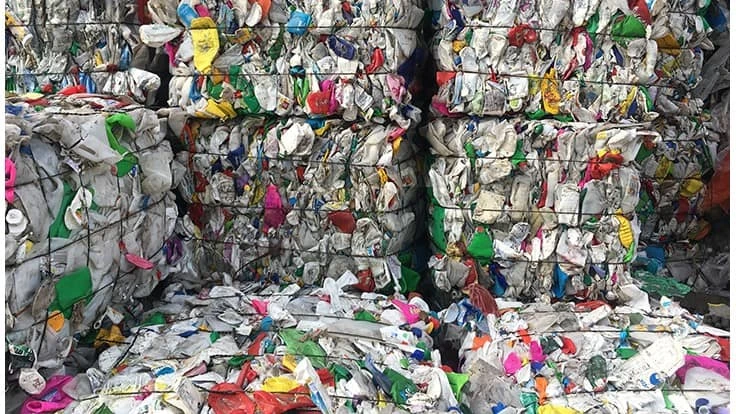
Photo by Brian Taylor.
The Brussels-based European Federation of Waste Management and Environmental Services (FEAD) says the “ambitious but achievable objectives” put forward by the European Union’s Green Deal and Circular Economy Action Plan will require the EU to “step up its investments in waste recycling and waste treatment capacity.”
More recycling is key to achieve a circular economy and be successful in the fight against climate change by avoiding CO2 emissions and creating sustainable, innovative, local jobs, adds FEAD.
“No doubt that waste recycling is a best environmental option, but it suffers from a lack of competitiveness compared to the use of virgin materials that do not incorporate environmental costs,” says Peter Kurth, FEAD president.
“The unprecedented proposed EU recovery plan will be followed by more detailed allocation of EU support,” adds Kurth. “This is the perfect time for [the European Community] to foresee a massive support through EU funds for reducing massive landfilling, developing selective waste collection schemes, investing in sorting installations, starting and strengthening activities in the whole recycling and recovery chain. Last but not least, the tax on nonrecycled plastic has definitely to be further explored as its own EU budget resource.”
Concrete policy and economic instruments are necessary to achieve the circular economy objectives, and create a strong demand for recyclables, says FEAD. The association makes these recommendations:
- To ensure the uptake of high-quality secondary raw materials, FEAD calls upon the European Commission (EC) to lay down mandatory recycled content rules on specific products. Moreover, mandatory rules on green public procurement also are necessary to ensure a stronger demand for recycled content in “green” products. Strong eco-design rules are also an essential part of the recycling dynamics, adds FEAD.
- Further improve the functioning of internal markets for secondary raw materials thanks to more efficient waste shipment procedures and EU-wide end-of-waste criteria on certain flows.
- Concerning exports, FEAD says proper environmental standards for shipments to third countries have to be put in place, ensuring that scrap exports can take place as an important component of the commodity market, which is crucial to more recycling.
- The treatment of nonrecyclable residual waste through waste-to-energy has a key role to play in a more circular economy. Thus, a more fact-based discussion on the proper treatment of nonrecyclable residual waste should be resumed at the EU level.
FEAD says its members are national waste management associations covering 19 EU member states, plus Norway. FEAD’s members represent more than 3,000 companies with activities in many waste management sectors.
Latest from Recycling Today
- BMW Group, Encory launch 'direct recycling’ of batteries
- Loom Carbon, RTI International partner to scale textile recycling technology
- Goodwill Industries of West Michigan, American Glass Mosaics partner to divert glass from landfill
- CARI forms federal advocacy partnership
- Monthly packaging papers shipments down in November
- STEEL Act aims to enhance trade enforcement to prevent dumping of steel in the US
- San Francisco schools introduce compostable lunch trays
- Aduro graduates from Shell GameChanger program





